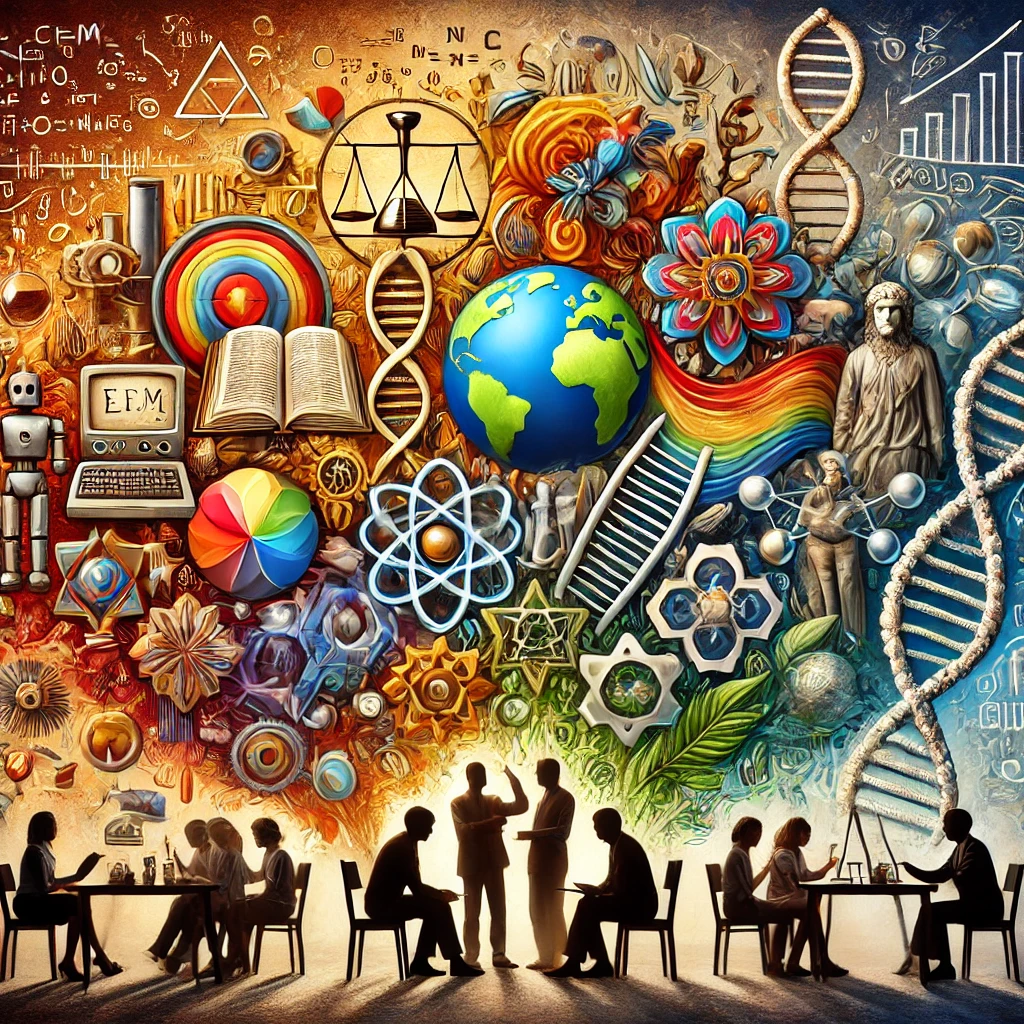Earning a science, technology, engineering, and mathematics (STEM) degree is undeniably valuable, and the demand for skilled individuals in these fields is growing. However, this pursuit should not come at the cost of neglecting the arts, literature, philosophy, psychology, and history. Unfortunately, humanities courses are increasingly being phased out from school curriculums, a trend that warrants our immediate attention.
In an opinion piece for The Globe and Mail, Ira Wells, an academic programs director at the University of Toronto, makes a compelling case for the ongoing value of studying the humanities. He argues that the soft skills learned from the humanities—communication, collaboration, intercultural awareness, emotional intelligence, and relationship building—are crucial for successful businesses and the workforce. Moreover, by learning these skills, he stresses, we actively respond to one of the most important modern questions: “What can you do that a computer can’t?” By encouraging critical thinking and a deep appreciation of human behaviour, the humanities can inspire new ideas and approaches to difficult problems, driving innovation in business and society.
While many advocate prioritizing practical and employable skills in our children’s education, it’s crucial to remember that they need more than just job skills to become successful, well-rounded and happy individuals labouring in their chosen fields. What is becoming increasingly clear to experts is that the humanities play a pivotal role in fostering adaptability, critical thinking, and understanding diverse perspectives. These skills have become essential in today’s complex landscape. While practical skills are undoubtedly important, they alone can’t help us, or our children, navigate the multifaceted challenges we all face. The humanities add depth and richness to our lives, helping us see beyond the surface and appreciate the human experience in all its complexity.
Why Humanities Matter
By offering more humanities-based courses in schools and emphasizing their importance, we can inspire and motivate students to learn about disciplines that will help them succeed in their chosen fields. Literature, psychology, philosophy, and sociology are not just subjects but intellectual and emotional catalysts that nurture leadership, critical thinking, and empathy. Educators and business experts increasingly recognize the intrinsic value of a humanities education because it helps prepare individuals for jobs and to become well-rounded, innovative leaders who can address complex challenges.
Literature is a doorway to diverse perspectives and ways of being. By immersing ourselves in others’ narratives, we cultivate empathy and emotional intelligence, which can create well-rounded individuals and effective leaders. Margaret Atwood, a prominent Canadian author, reminds us, “We still think of a powerful person as one who has power over others. But power is not a fixed thing. It is about relationships and what we do with those relationships.” Her thoughts highlight how storytelling and language influence our awareness of power dynamics and interpersonal connections. A good illustration of these dynamics occurs in her novel, The Handmaid’s Tale, which explores themes of oppression and agency, encouraging readers to consider various perspectives. By reading diverse literature, we increase our emotional intelligence and understanding of others’ experiences, improving our ability to collaborate and lead.
Psychology provides insights into human behaviour, motivations, and group dynamics. By becoming aware of how these nuances, our insight into why we and others think and act the way we do increases dramatically. This knowledge helps us understand ourselves while teaching us essential leadership lessons. Dr. Angela Lee Duckworth, a professor of psychology at the University of Pennsylvania and a leading voice in character education, notes, “The ability to perceive and interpret the actions of others lays the groundwork for strong interpersonal relationships. This is the bedrock of successful leadership.” In Canada, organizations like the Canadian Psychological Association advocate for integrating psychological principles in leadership training, emphasizing the importance of emotional intelligence in fostering productive work environments.
Philosophy builds critical thinking and ethical reasoning skills, encouraging students to question assumptions and consider the larger implications of their decisions. Philosophical inquiry aids in analyzing moral dilemmas, making it an invaluable tool for emerging leaders. Canadian philosopher Charles Taylor emphasizes, “Philosophy is not just an abstract field—its principles are directly applicable to our lives and decisions.” Leaders equipped with ethical reasoning can better navigate challenges responsibly and sustainably.
Sociology, with its exploration of the complexities of social dynamics, structures, and behaviors, provides a framework for understanding systemic issues. Preeminent sociologist and author Dr. Robert Putnam notes, “To lead effectively in our interconnected world, one must first understand the social dynamics at play.” In Canada, the work of sociologists like Dr. Janice Stein at the University of Toronto underscores the importance of understanding societal interactions in addressing issues such as immigration and multiculturalism, which have increasingly become contentious.
Learning about the humanities is vital for personal enrichment and developing the critical thinking skills necessary for effective leadership. By immersing ourselves in literature, psychology, philosophy, and sociology, we cultivate a deeper understanding of the human experience, equipping future leaders with the tools to navigate the complexities of our world. As we continue to evolve in an age dominated by technology, let us not forget the powerful lessons offered by the humanities—lessons that must shape the leaders of tomorrow if we wish to maintain a more fulsome and enriching human identity and existence.

